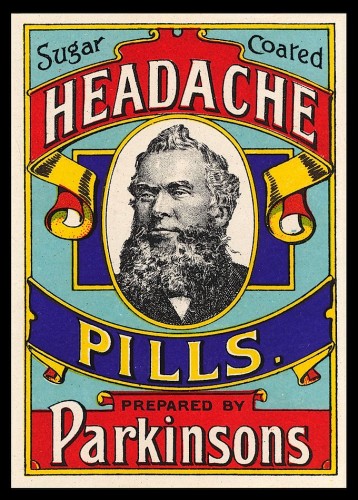In previous articles we introduced the potential of caloric restriction (CR), that is a reduction of between 20-40% of the normal caloric intake, to extend lifespan and improve the healthspan, thereby delaying the onset of aging related diseases. But, is CR recommended for everyone?
Today we review caloric restriction in the context of disease. While most of the research in healthy animal models, and even in humans shows benefits, the effects of this nutritional intervention are more varied in disease.

For instance, CR seems to be beneficial in Alzheimer’s disease (AD) and other neurodegenerative diseases. Several studies both on animal models and human patients at risk for AD have shown that dietary restriction based on reduced carbohydrate intake is able to prevent AD beta amyloidosis, while a highly caloric saturated fat rich diet promotes it. Moreover, a ketonic diet has also been shown to delay the progression of the disease in rodents. The beneficial effects of caloric restriction and/or of modified diets with limited nutrient classes is somehow consistent with the fact that insulin-resistance and obesity are important risk factors in AD development. Further experiments in mice showed that CR delays the onset and progression of neurodegenerative diseases by improving cellular resistance to stress, enhancing synaptic plasticity, and improving cognitive performance through nutrient-mediated cascades and signaling processes in which SIRT1 (Sirtuin 1) has been demonstrated to play a key role. On this line of research, caloric restriction via SIRT1 rescued the motor incoordination, imbalance and associated neuropathology of a transgenic mouse model of the Machado-Joseph disease which is a genetic neurodegenerative disorder characterized by olyglutamine expansions in an ataxin gene, and therefore related to Hungtington’s disease and/or other ataxias.
Looking at these data, it would be expected that other neurological diseases would profit as well from caloric restriction, however, it has been demostrated that caloric restriction has detrimental effects in amyotrophic lateral sclerosis (ALS). In a ALS mouse model, CR correlated with a decrease in life expectancy, probably due to an increased lipid peroxidation, inflammation and apoptosis, and decreased mitochondrial bioenergetic efficiency, protein oxidation and stress response. Actually, in ALS patients an increased caloric intake has been proven to attenuate the symptoms and progression of the disease, moreover, a high-calorie diet would not lead to obesity or diabetes in these patients, suggesting the possibility that in this disease the basal metabolism is greatly increased. As in the case of AD, a ketogenic diet was also shown to slow down ALS, thus proving the complex interactions between the energy metabolism and neurodegeneration.

In the case of Parkison’s, most of the evidence seems to support CR as an aid against the disease. In a primate model of Parkison’s, 6 months of CR improved on neurochemical deficits and motor dysfunction, wtih similar dopamine levels to control animals. However, no significant difference was found in terms of neuron survival in the substantia nigra. Another study on a rodent model of Parkinson also failed to detect any improvements on cell count after CR. Even when CR seems to be useful in limiting the extent of the symptoms, it doesn’t seem to have a neuroprotective effect, suggesting an alternative mechanism is driving the improvement.
What about cancer? Cancer is not a single disease but the end result of an uncontrolled cell division, and has specific characteristics depending on the cellular origin, therefore it is important not to extrapolate results from one type of cancer to all others. Now, CR has been investigated both in mouse models and in clinical trials on cancer patients. And in general, it was found harmless. Furthermore, in experiments in a mouse model of triple negative breast cancer CR significantly increased the time to developing metastases, decreased the overall number and volume of lung metastases, and increased survival, due to a downregulation of the IGF-1R signalling pathway. Similar in vitro and in vivo experiments on melanoma cells in mice, demonstrated that CR can lower proliferation, and increase expression of stress-response proteins. In a xenomutant neuroblastoma mouse model, where neuroblastoma cells from a human were implanted in a mouse, CR as well as a ketogenic diet significantly reduced tumor growth and prolonged survival.
Previously, we have mentioned that ketonic diets are advantageous for most patients with neurodegenerative diseases, and in a previous article we also stated the benefits of low-protein diets as an alternative to a full-on CR. In diabetic nephropathy, animal studies have shown excellent renoprotective effects and to slow kidney disease progression. However, in human clinical trials, analyses of the effects of protein restriction on diabetic nephropathy have not yet revealed consistently positive outcomes.
In summary, although CR seems to be an advisable option for improved long-term health outcomes, it is important to consider the initial health status of each individual and carefully look at the possible complications that such a dietary intervention might have for disease progression. In any case, most of the experimental evidence comes from animal models and human trials are needed to determine the extent of CR effects on disease.
Y. Kashiwaya et al., A ketone ester diet exhibits anxiolytic and cognition-sparing properties, and lessens amyloid and tau pathologies in a mouse model of Alzheimer’s disease, Neurobiol Aging, 34:1530-39, 2013.
Simone BA et al. Caloric restriction coupled with radiation decreases metastatic burden in triple negative breast cancer.Cell Cycle. 2016 Mar 30:0. [Epub ahead of print]